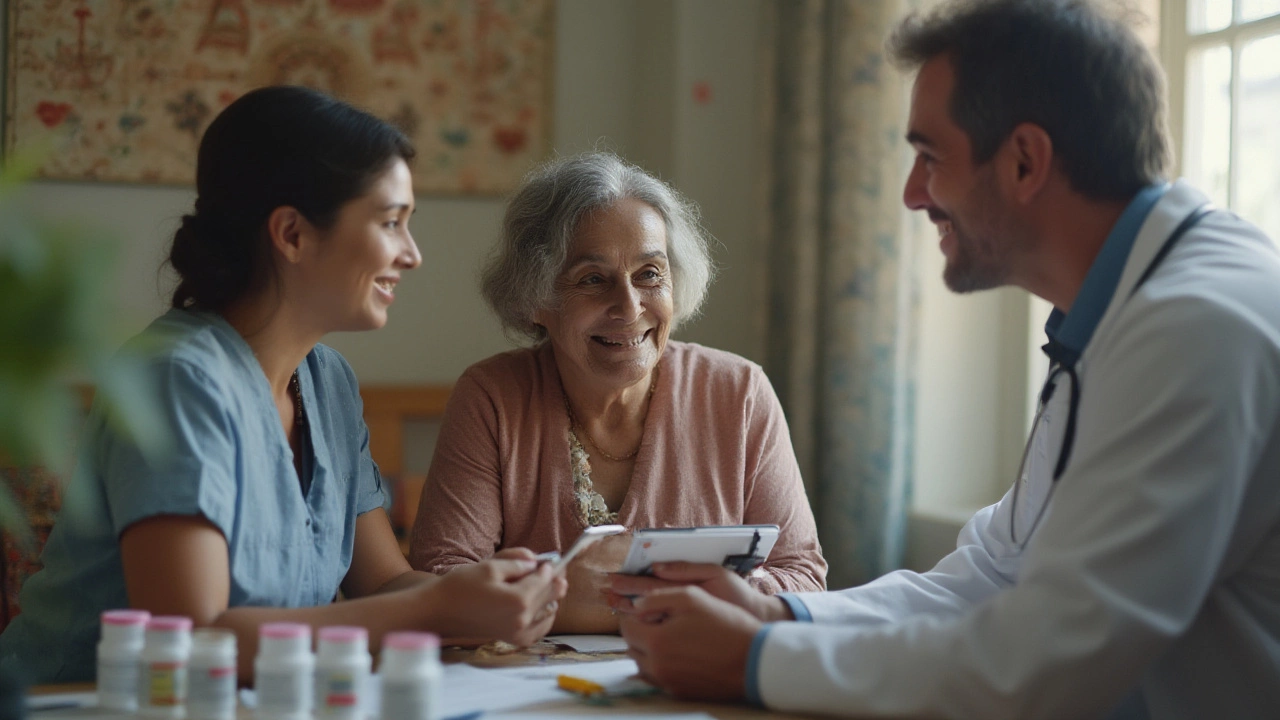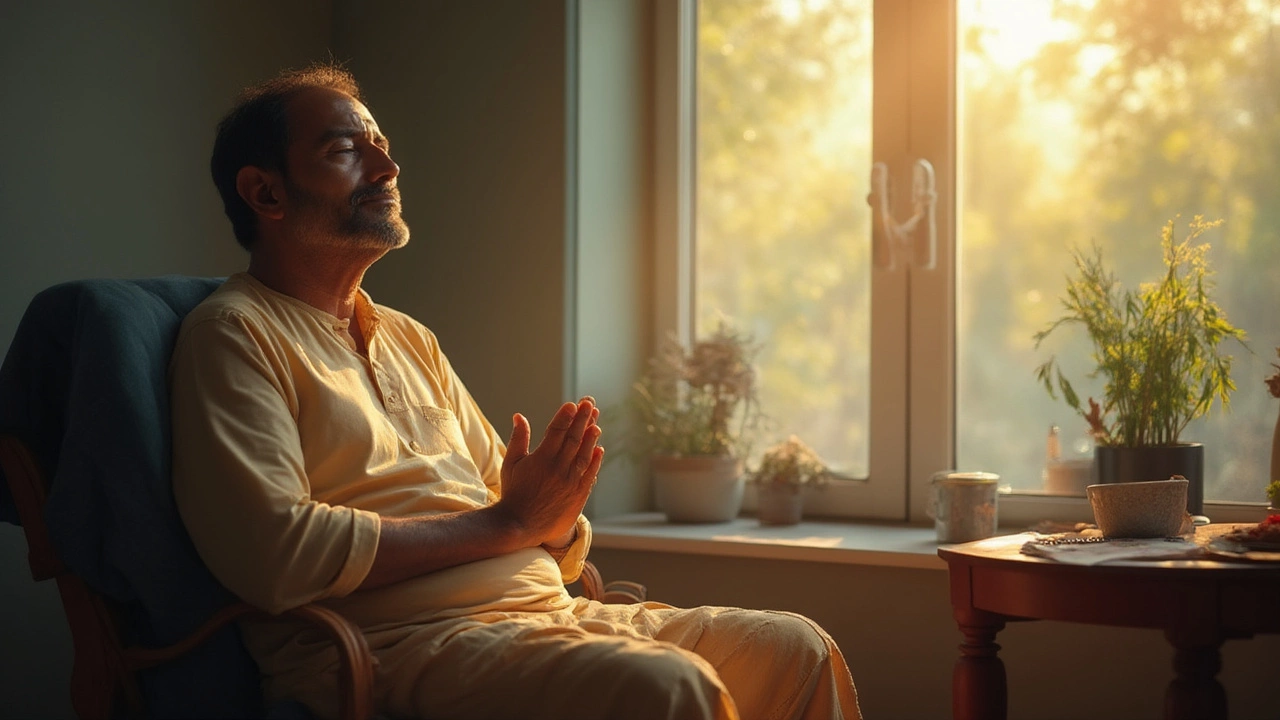If you’ve just been told you’ll need open-heart surgery, a dozen questions probably pop up all at once. Will I be able to walk to the bathroom on my own? What if I can’t get out of bed? Do I need to hire someone to look after me, or will my family be enough? It’s tough to wrap your head around needing help with everyday stuff, but open-heart surgery isn’t like getting your tonsils out—most people could use a hand, whether they’re willing to admit it or not. Some think only older folks or people with lots of health problems need a caretaker, but after major heart surgery, the reality is almost everyone benefits from some extra support. Here’s what people really go through once they leave the hospital, what a caretaker actually does, and why refusing help might set you back when recovery is your main goal.
What Happens After Open-Heart Surgery: The Reality of Recovery
Most people feel blindsided by just how much open-heart surgery knocks the wind out of them. Even if the operation’s a success and you’re rolling out of ICU with all your vital signs looking decent, it can honestly feel like you’ve been run over by a bus. The truth is, your body’s doing some heavy lifting to heal the breastbone (sternum), adjust to a new way of pumping blood, and handle the emotional rollercoaster that follows. You’ll leave the hospital after five to ten days for straightforward surgeries, maybe longer for complications. Usually, your medical team wants you out of bed and walking a short distance within a day or two—those first few steps take grit. Back at home, things get real. Getting out of bed, reaching a kitchen shelf, taking a proper shower—suddenly, it all feels exhausting and risky. The pain meds help, but they can make you dizzy or foggy. Climbing stairs, dressing, even making tea—stuff you probably did on autopilot now takes effort and, occasionally, help. Most people don’t bounce back to their routines for at least six to eight weeks (some say up to three months before they feel "normal" again). If you’ve got other health issues—like diabetes, weak muscles, or breathing trouble—it can drag on much longer.
Now, doctors and surgeons don’t expect anyone to become bed-bound or helpless, but they do warn about not pushing it too hard. Lifting more than a couple of kilos (think a heavy laptop or big grocery bag) is a huge no-no until your sternum is rock solid. If you bust those healing wires or glue, you might be headed back under the knife. A 2023 study out of the Mayo Clinic found that patients who tried doing household tasks too soon had a 30% higher rate of readmission within 30 days. Plus, there’s mental burnout—people struggle with anxiety, sleeplessness, or feeling down in the dumps, especially if they’re alone. Ever tried tying your own shoes or getting out of a reclining chair two days after open-heart surgery? It’s humbling. You can see why even fiercely independent folks often realize pretty fast that having someone nearby, even just to help them walk or handle meals and meds, is more necessity than luxury.
Most hospitals set up a discharge plan with a list of "can’t dos" for the first month: driving, bending over, pushing a vacuum, walking the dog solo, even sleeping solo in a bed if you’re a high fall risk. Hospitals also warn about the danger signs—fevers, bleeding, chest pain, or sudden weakness. If you don’t have someone around to notice these fast (and call for help), things can get scary in a hurry. That’s why doctors often recommend arranging caretaking, whether it’s a family member, friend, or paid professional, for at least the first two or three weeks at home.

Why a Caretaker Can Make or Break Your Recovery
It might sound dramatic, but there’s hard data showing people with a caretaker after open-heart surgery do better—physically and emotionally. A huge review published in the Journal of Cardiothoracic Surgery in 2024 showed that heart surgery patients who had reliable support at home healed faster, handled their medications better, and felt less anxious, compared to those who went it alone. Caretakers don’t have to be nurses or medical pros; what matters most is having someone attentive, patient, and willing to help you stick to all those annoying—but necessary—rules. Picture this: You’re too tired to remember your antibiotics, you wake up sweating with a low-grade fever, and you’re not sure if it’s serious or you just overdid it earlier. A good caretaker will notice if you’re acting "off," encourage you to rest, and get you medical help fast if needed. That’s peace of mind you can’t put a price tag on.
But it’s not just about emergencies. Recovery is as much about small victories as big leaps. Cooking healthy meals, staying on top of wound care, keeping the house safe from tripping hazards, and, yes, handling trash or laundry—these all eat up energy and can slow healing if you’re overdoing it. Many patients say they’re amazed by how having someone help with showers, reminders for pills, or even setting up chairs and pillows really helps prevent setbacks. Even things like motivating someone to do slow, steady walks (which matters a ton for circulation) become way easier if you’re not doing it alone.
It’s also tough to overstate the emotional boost. After any big surgery, mood swings are normal, and depression is more common than you might think. The Cleveland Clinic says as many as 25% of open-heart patients experience depression in the first couple of months post-surgery. Simply having company can keep those bad days from spiraling. As one of their lead cardiac nurses puts it:
“We see people recover better, eat better, and get moving sooner when they have someone looking out for them every day, even if it’s just a partner or friend.”
Some people push back, insisting they don’t want to "burden" loved ones. Others worry about the cost of hiring help. It’s true—hiring a nurse or aide full-time is expensive, but often you don’t need round-the-clock care after the first week or two. Many get by with a few hours daily, just for the trickier stuff. Or they rotate helpers (siblings, friends) to avoid burnout. Hospitals and insurance sometimes cover temporary home health aides for wound checks, vitals, and exercise coaching. Don’t feel guilty about asking for help. Think of it like a safety net so you don’t land back in the hospital.
Here’s the deal: if you’re living alone, if you’re weak from heart failure, if the surgeon did more than one kind of repair, or if you have trouble with daily basics already, you probably shouldn’t tough it out solo. The risks are just too high. "Stay safe, heal stronger, hassle less"—that’s what caretakers are for, not just babysitting. Even stubborn folks realize after a day or two at home that not needing to stress about every single detail is actually pretty nice.

How to Find the Right Help and Make Recovery Smoother
All this talk about caretakers raises a different set of worries: How do you find someone trustworthy, reliable, and right for your situation? What’s the difference between a professional carer and a helpful cousin? The best place to start is your hospital’s discharge planner or cardiac rehab team—they’ll know exactly what you’re allowed and not allowed to do, how much help you might really need, and can suggest resources nearby. Sometimes, insurance covers a few weeks of home health visits, but you’ll want to sort this before surgery if possible, since paperwork and approvals can be slow. Ask clear questions at the hospital: How long before I walk on my own? When can I bathe or shower normally? How much help will I need during the day or at night? Can any of my tasks be split up between a few people?
Family and friends can be superstars if everyone communicates openly. Create a calendar. Give each person specific jobs—maybe your sister handles shopping and groceries, while a neighbor or friend sits with you after lunch to chat or help with exercises. If nobody can stay with you 24/7, arrange for short check-in visits and make a list of emergency contacts. Write down your medication schedule and keep your phone charged, just in case. Technology helps—a cheap doorbell camera, a wearable fall sensor, or check-ins through video calls can fill some gaps if you’re mostly independent, but nothing replaces having someone on the ground if you feel faint or have trouble breathing.
- Look for caretakers through trusted agencies if you need paid help. Check reviews and always interview in person.
- Ask about post-hospital care programs—many cities have short-term nurses or aides for heart patients (at no or low cost).
- Don’t ignore emotional help. If you’re feeling low, call your hospital’s social worker or join a heart patient support group—talking with those who’ve been through it helps more than you’d think.
- Keep your recovery zone clutter-free. Even a single power cord or rug can be a tripping hazard when you’re groggy or weak.
- Make easy meals ahead, freeze portions, and keep snacks and water close to where you rest during the day.
For lots of people, the hardest thing is accepting help—they want to be strong for family, or hate the feeling of losing independence. But, skipping the help isn’t brave; it’s risky, and could set your recovery back or send you right back to the ER. After the first rough weeks, most people can handle more on their own, but having support early on lays the groundwork for getting back to heart surgery recovery. Healing after open-heart surgery means taking care of the whole you—body, mind, even a little bit of pride. Don’t tough it out alone if you don’t have to—the safest recovery really is a team effort.



